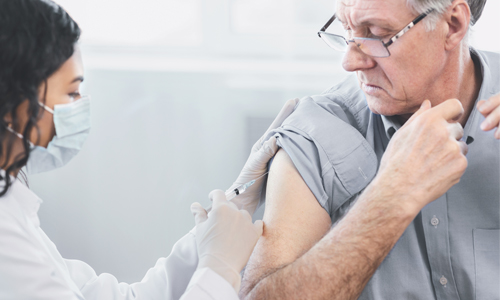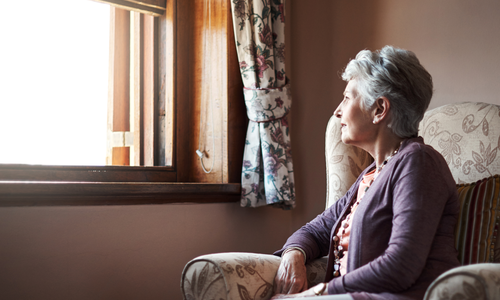Today the Prime Minister has announced that the final easing of coronavirus restrictions, which as part of the roadmap announced in February was pencilled in for 21 June, will be delayed to Monday 19 July. Age UK’s Head of Research looks into the evidence this decision will have been based on.
Increasing infections
Numbers of cases of coronavirus in the UK have been increasing since the middle of May and numbers of people being hospitalised with coronavirus are now starting to increase too. This suggests that we are at the beginning of another wave of coronavirus. As worrying as this is it’s important to remember that this wave it should be very different to previous waves – most older people and others who are particularly vulnerable to coronavirus have been vaccinated, so numbers of people in hospital and dying from coronavirus will not increase as quickly as they have with previous waves.
The Delta variant
The Delta variant – also known as B.1.617.2, and first identified in India – is now by far the most common variant of coronavirus in the UK, with Public Health England estimating that 96% of cases are Delta. There is increasingly robust evidence about how the Delta variant compares to the previous most common variant, the UK or Alpha variant (B.1.1.7):
- Delta spreads more easily – Public Health England estimate that Delta is 60% more transmissible than Alpha.
- One dose of vaccine doesn’t work as well against Delta – although after two doses people are almost as well protected against becoming ill with Delta as with Alpha, people who have only had one dose are less well protected. Public Health England estimates that one vaccine dose provides 26-40% protection against becoming ill with the Delta variant, compared to about 50% protection against the Alpha variant.
- Delta may make people more ill – there is emerging evidence that people who catch the Delta variant are at higher risk of being hospitalised than people who catch the Alpha variant.
- This means that we need to do more – in terms of numbers of people vaccinated, or in terms of restricting our social contacts – to prevent a large wave of coronavirus.
Delaying will mean more vaccinations
More than half of UK adults have now had two doses of vaccine and therefore have a high level of protection against the Delta variant, and a further quarter of adults have had one dose of vaccine. Although this is impressive, it is not yet enough to stop the Delta variant spreading and causing another wave of coronavirus infections. In England there are around 2 million people aged 50 and over, and therefore at quite high risk of needing to be in hospital if they catch coronavirus, who are not yet fully vaccinated.
In recent weeks 3-400,000 people in the UK have received their second vaccination each day, whist 1-200,000 people have had their first dose. Delaying by 4 weeks provides an opportunity for millions more people to be fully vaccinated and further millions to have at least some protection through being partially vaccinated. The Prime Minister is aiming for everyone 50 and over to have had 2 doses, and everyone 18 and over to have had 1 dose, by 19 July.
If you’re invited for your vaccine consider taking up the invitation, and if you were invited some time ago and have been hesitating, the offer is still open. Being vaccinated will make you much less likely to become ill with coronavirus and even less likely to need to be in hospital – even with the Delta variant. Each extra vaccinated person also makes it harder for coronavirus to spread so even people who have been unable to be vaccinated, or whose immune systems have not responded strongly to the vaccine, can share in the protection we have all built up as a community.





